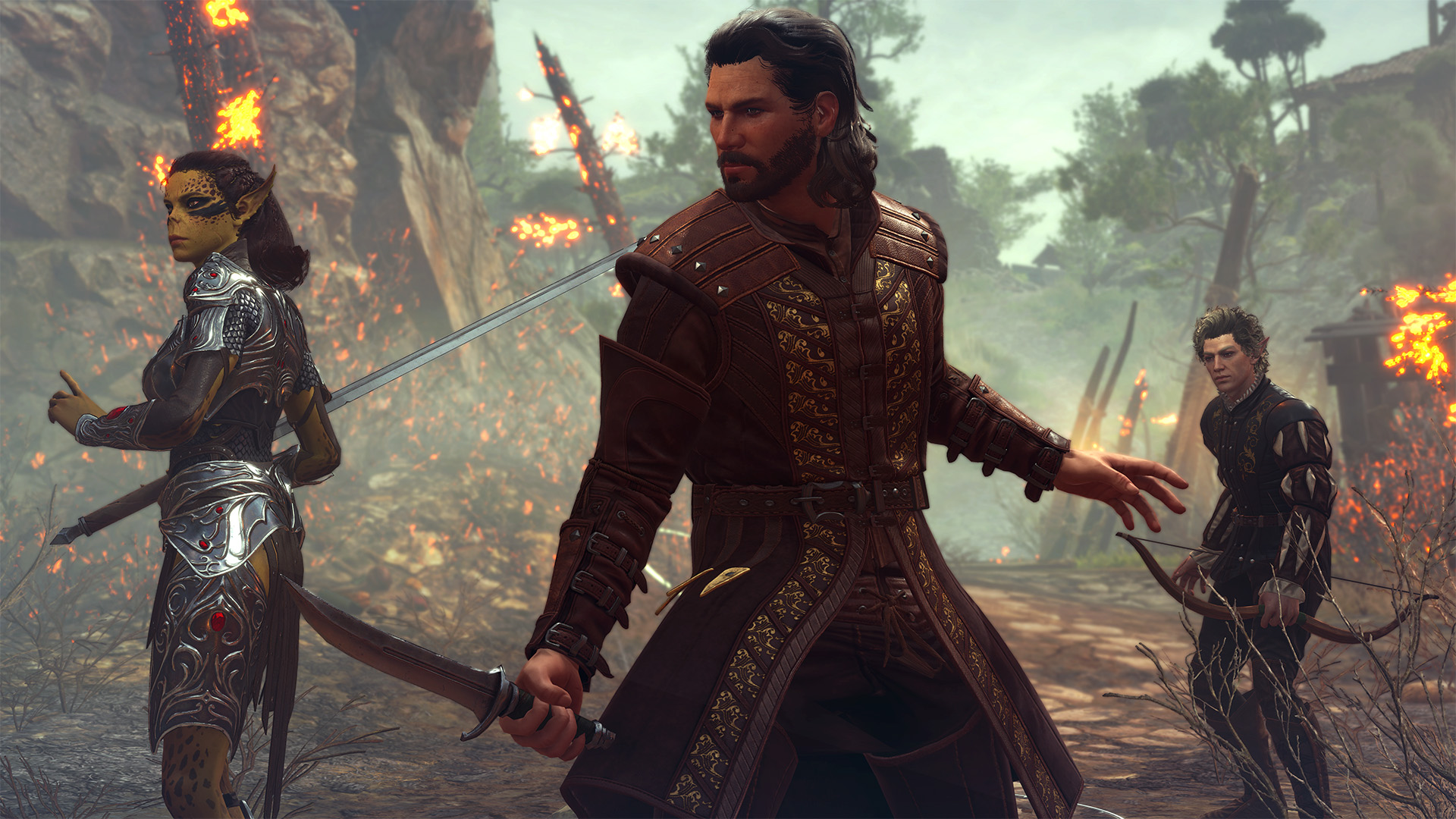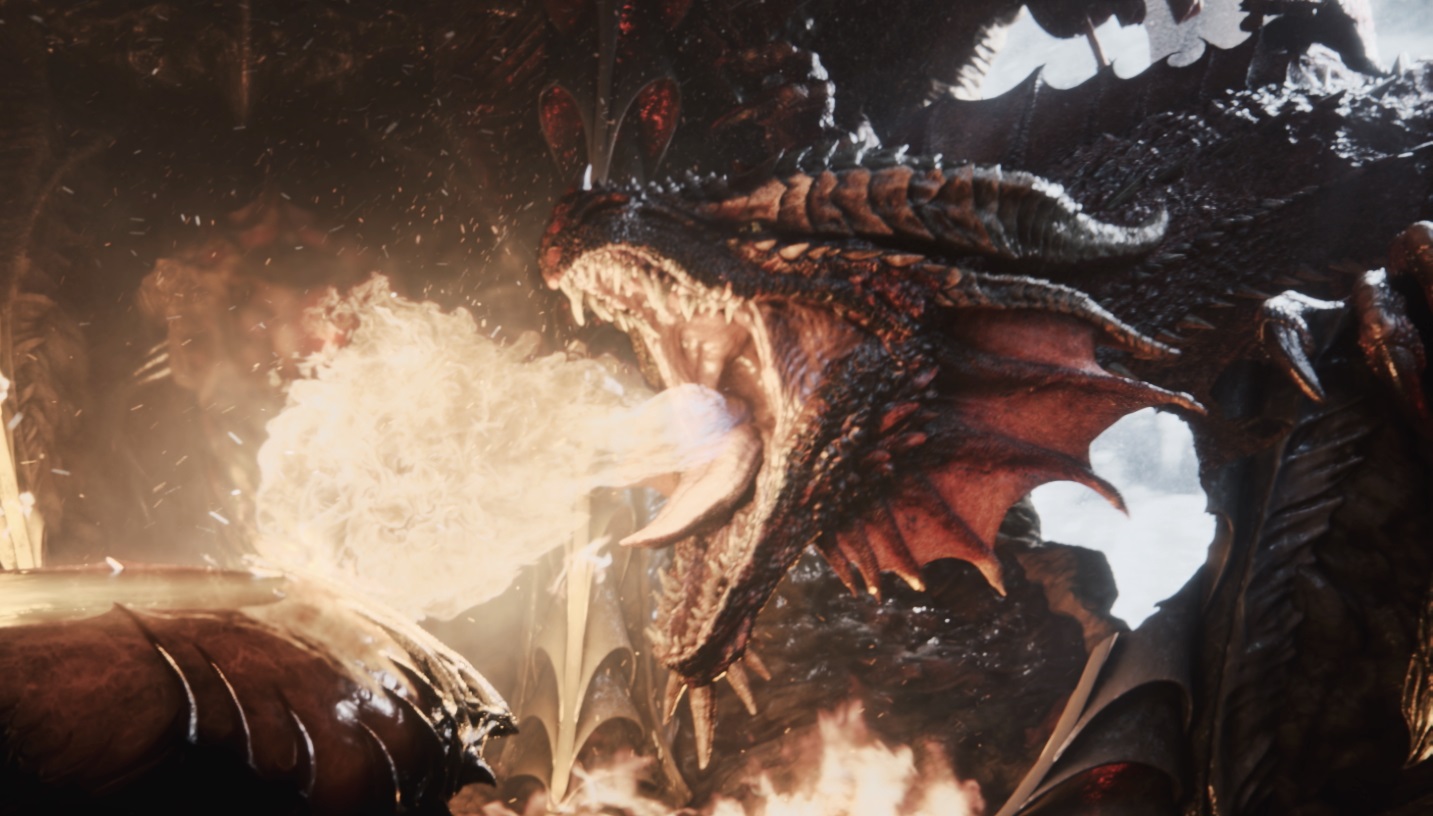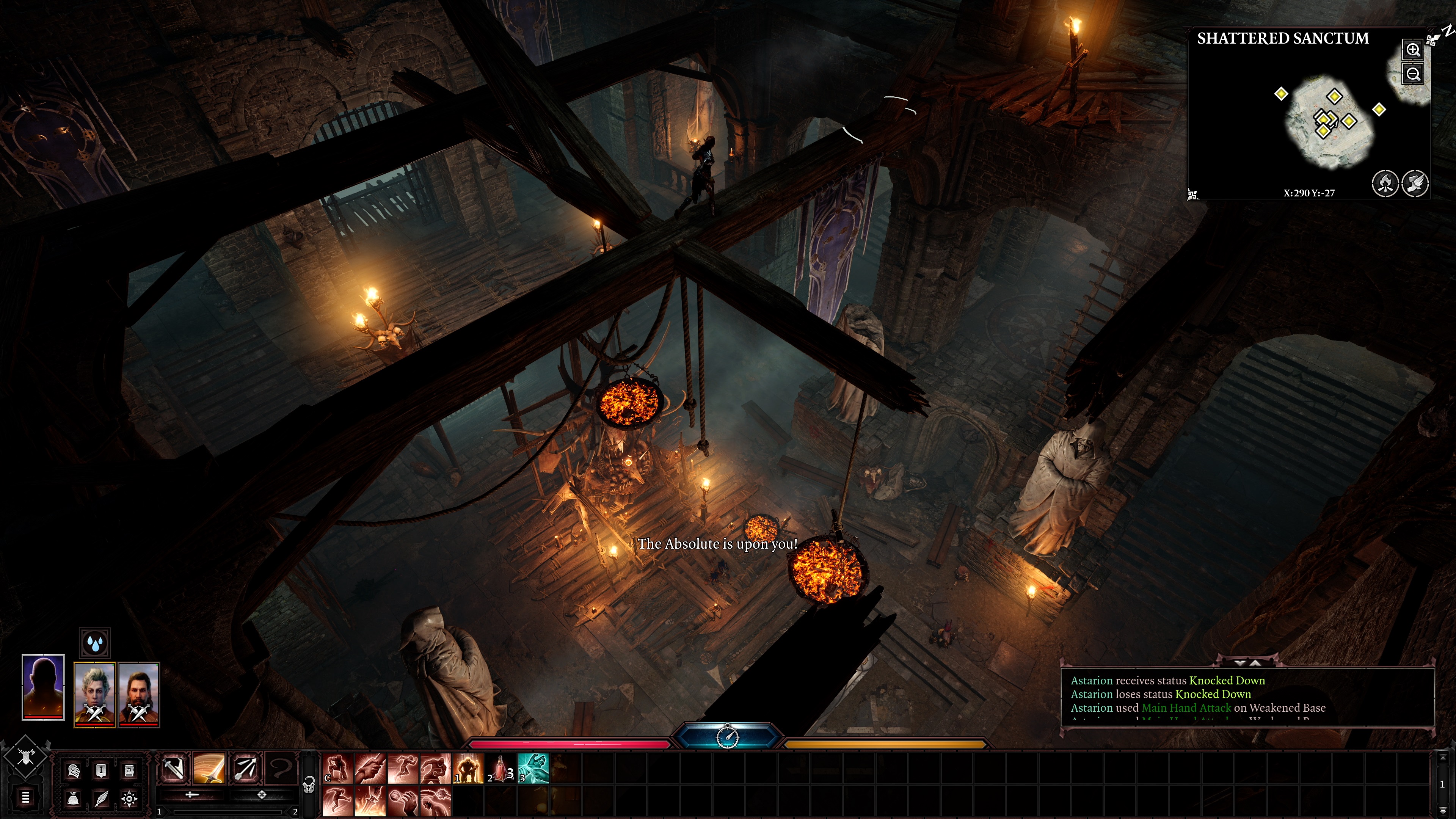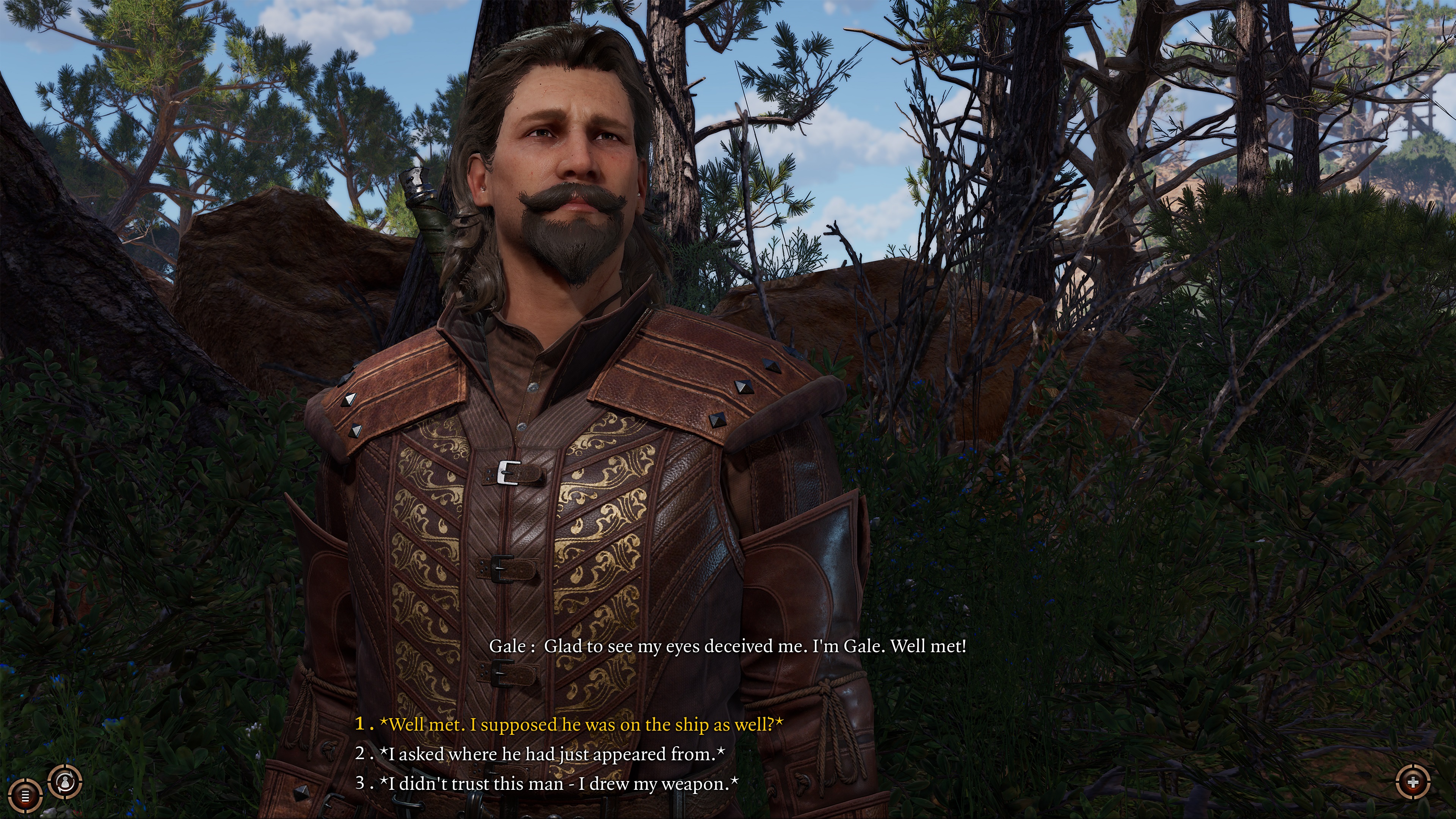How Baldur's Gate 3 compares to Divinity: Original Sin 2
Wes and Fraser take a deeper dive into what they thought of Baldur's Gate 3 from two lengthy demo sessions.

It's a good sign for an RPG when two demos of the same chunk of the game play out completely differently. That was our recent experience with Baldur's Gate 3, which we recently saw in Paris and San Francisco. We didn't get to play, but the two-hour demo we each saw was only loosely scripted and showed off how open-ended Baldur's Gate 3 is going to be, much like developer Larian's previous game Divinity: Original Sin 2.
You can read a full account of the demo in Fraser's preview here, but there was more for us to talk about. Here's what stood out from a solid four hours of Baldur's Gate 3.
Wes: Divinity: Original Sin 2 was PC Gamer's Game of the Year in 2017, and it was definitely my favorite game that year, too. So I'm not disappointed to see that Baldur's Gate 3 is very much built on the foundation of that game. But do you think it's too Divinity, at the expense of not looking or feeling enough like Baldur's Gate 2?
Fraser: Since Divinity already has its roots in D&D, like so much western fantasy, I think Baldur’s Gate 3 can afford to evoke Larian’s previous games. It definitely does feel a lot more like Original Sin 2 than Baldur’s Gate 2, but it doesn’t appear to have lost anything. Larian’s clearly full of D&D nerds and at no point in the demo did it seem like less than an authentic adaptation of the tabletop game, but for anyone looking for something that’s exactly like Black Isle’s Infinity Engine games, they’re not going to find that here.
Wes: One thing that was definitely exactly the same as Divinity: Combat can go disastrously wrong for you in hilarious ways. We each saw the same two hours or so of the game played by Larian head Swen Vincke, but I think our demos played out really differently. He actually played quite well in mine, but some entertaining screw-ups called for improvising. You could definitely miss attacks in Divinity, for example, but it seemed to happen a lot more in BG3. The dice rolls felt appropriately D&D and ruined a few well-laid plans with critical misses. What were some of the highlights for you?
Fraser: He threw a boot at a bandit, Wes.
Some of the designers at Larian like to joke that Vincke is bad at playing his own games—though he certainly kicked my ass in Original Sin 2’s PvP arena—and luck wasn’t on his side this time. He wiped in the first battle, almost wiped in the second, and spent a lot of time trying to dig himself out of holes. I honestly couldn’t have asked for a better demo. All the screw-ups put the game’s complex systems front and centre, forcing Vinke to start throwing clothes and coming up with other clever solutions. At one point, he even exploited nearby neutral NPCs so they could come to his rescue.
Keep up to date with the most important stories and the best deals, as picked by the PC Gamer team.
Wes: That's so fun—more games should let you throw random shit from your inventory as a desperate act. And Vincke playing that way in a demo speaks to the fact that Larian's games are designed around the absurd, desperate, unplanned things players might do, which seems like a rarity to me. In most games, when players find those kinds of solutions, it's because they're pushing past the confines of what the developers intended.

- Our big Baldur's Gate 3 preview
- How Larian is keeping Baldur's Gate 3 weird
Even if it's not exactly in the spirit of old Baldur's Gate, I'm so happy to see the major systems from Divinity, specifically around manipulating items, carry over. You could be so creative in how you played Original Sin by using items in the environment, or find ways to totally break the game, like using a super-heavy barrel to crush enemies. If anything it seems like they're expanding on that freedom with verticality and proper physics for 3D environments this time around.
Fraser: It’s very different from Baldur’s Gate 2, but it’s definitely in the spirit of the tabletop game. All the ways you could interact with the world in Original Sin 2 seems to be intact, with some new ones thrown in for good measure. It’s the simple stuff that I like, though—stacking crates to give you a height advantage in combat, or just using them to block a door. And once again you can use surfaces to your advantage. You can set your weapons on fire, make people slip on grease and mix elements to create smoke. Vincke said that surfaces aren’t quite as big a part of combat as they were in Original Sin 2, but they cropped up in every battle I watched.
The multi-tiered environments are really exciting. There was a section late in the demo where Vincke was chatting to a hobgoblin boss with one character while another was sneaking behind him via the rafters. It was a pretty striking scene, with the rogue slinking in the shadows while his party was bathed in the red glow of the braziers below him. It’s got some cracking lighting. The battle was almost over before it started, with Vincke’s gambit paying off. In another fight, he knocked down a crumbling arch, which revealed catacombs when it smashed through the floor. This obviously opens up the combat considerably, but there are ways for you to deny your enemies things like height advantage by going around and smashing ladders, making it harder for them to get above you. They can do the same, unfortunately.

Wes: I'm glad you brought up the surfaces, because those seem to be improved and simplified a bit from Divinity 2. Divinity 2 just tried to do a bit too much, and a combat designer for Baldur's Gate 3 told me they're pulling back a bit from that, without sacrificing fun interactions like fire and explosions. I'll be glad to see blessed/cursed gone, this time.
The presentation really looked great, as you said. You can tell they really upgraded their tech for this game, and you can zoom in a lot closer to your characters which blends well with the new motion captured dialogue scenes and cutscenes. It feels more like a modern BioWare RPG now, though not quite so detailed; it's still a game you're going to largely spend playing zoomed-out. That perspective goes a long way towards distinguishing Baldur's Gate 3 from Larian's last two games.
Fraser: Along with the turn-based combat, the thing I most wanted to see make the leap from Original Sin 2 was the origin character system, which has thankfully happened. The only one we got to see played was Astarion, the vampire spawn, but every companion that joined our party could also have been picked at character creation. It straddles the line between games with a set protagonist, like Geralt in The Witcher, and free-form adventuring parties. Origin characters are tied to a specific class this time, but aside from that it looks like you can play them however you like. In my demo, Astarion was a dickhead who fed on his friends, robbed a woman whose legs had been broken and sided with an evil drow priestess. Was he nicer in your demo?

Wes: Well… not much. It seems like the big conflict in Astarion's story is whether you succumb to your vampire instincts or resist them. In one scene, while your party's sleeping, you have the option to drink a party member's blood just a little bit, or keep doing it until she dies. You may not be surprised to learn that the room full of journalists were hollering for him to take the evil option. He got a good drink in, but stopped short of killing her.
One big change from Divinity, which I think classic RPG fans will be happy about, is that you can actually recruit quite a few characters, who will hang out in your "camp" throughout the game. We didn't get to see much of this, but Vincke confirmed for me that you can have more characters on your journey than the four you can control as a party at any given time. It's basically the camp system from Dragon Age, which they took inspiration from. You always have to control your primary character, though, so if you happen to play Baldur's Gate 3 in four player co-op, you won't have the option of swapping out followers.
It all looks great so far. There were bugs here and there, and I feel like the UI could use some prettying up, but it's still pre-alpha, so that's easily forgivable. The only thing I'd really be critical of from the demo was that the AI seemed to make stupid decisions in battle quite often. They still hit really hard, obviously, since Vincke party wiped in your demo a couple times. But they weren't exactly clever. I know Original Sin 2's enemies could be smart and brutal on higher difficulties, though, so it's not something I'm especially worried about for the finished game. Final thoughts on the demo?
Fraser: Vincke told me that there are plans to make a new version of the AI that will be smarter, like having an enemy make judgment calls about what they can use as a decent weapon if you’ve disarmed them. Hopefully we’ll see some improvements in that area next time.
As you said, though, it looks like it’s in a good state right now. I’m rarely enamoured by hands-off demos, but I was genuinely on the edge of my seat the whole time. At one point I think I audibly gasped, which was a little embarrassing. It’s one of those rare RPGs that, in great part thanks to it encouraging experimentation, is really fun to watch. Despite still being in alpha, there was nothing that raised any concerns, and so far it’s everything I’d want from a Larian D&D game.

Wes has been covering games and hardware for more than 10 years, first at tech sites like The Wirecutter and Tested before joining the PC Gamer team in 2014. Wes plays a little bit of everything, but he'll always jump at the chance to cover emulation and Japanese games.
When he's not obsessively optimizing and re-optimizing a tangle of conveyor belts in Satisfactory (it's really becoming a problem), he's probably playing a 20-year-old Final Fantasy or some opaque ASCII roguelike. With a focus on writing and editing features, he seeks out personal stories and in-depth histories from the corners of PC gaming and its niche communities. 50% pizza by volume (deep dish, to be specific).

